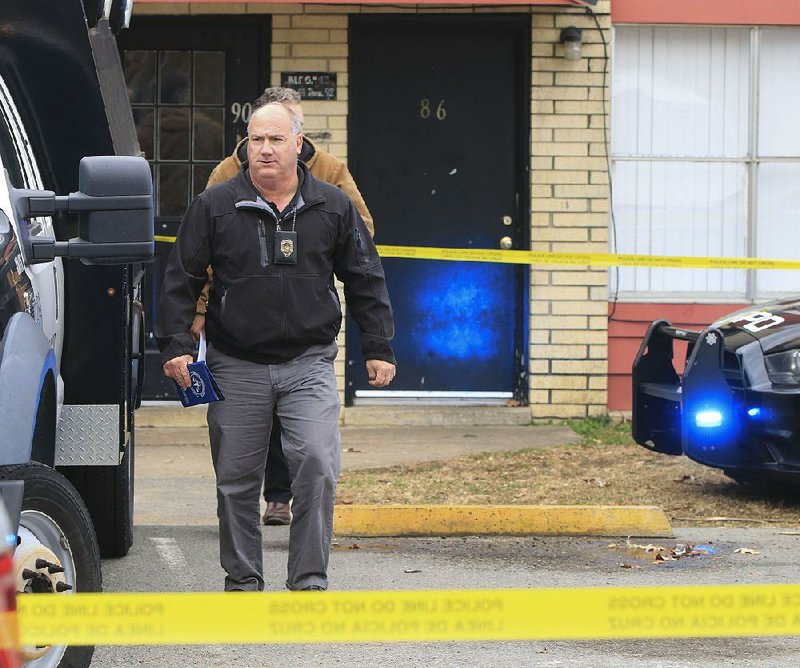A Pulaski County circuit judge has issued a gag order on a triple-homicide case that left a 24-year-old woman and her two young children dead in Little Rock.
Michael Ivory Collins, 25, and William Alexander, 21, each face three counts of capital murder and one count of aggravated robbery in the case, court records show.
The homicide victims, Mariah Cunningham and her children, 5-year-old Alayah Fisher and 3-year-old Elijah Fisher, were all found dead on Dec. 5 in their southwest Little Rock apartment, according to authorities. The three were found after the children did not show up for school and a family member could not reach Cunningham, police said.
Months after the homicides, key facts of the case remain unknown to the public, including how the three victims were killed and how authorities developed Collins and Alexander as suspects. Little Rock police, earlier this year, said Alexander and Collins are brothers and that Collins knew Cunningham.
Circuit Judge Herbert Wright signed a gag order on Tuesday that bars all Arkansas law enforcement agencies and others from commenting on the subject matter of the case to the public and members of the media.
Others barred from commenting include the FBI, the prosecuting attorney and his staff and the defense counsels and their staff, according to the order.
The order also sealed the investigative file to "protect the defendants' right to a fair trial in accordance with due process of law."
On April 9, the Arkansas Democrat-Gazette placed a public records request for the full investigative case file related to the triple homicide.
A Little Rock police spokesman said Sunday that the department would not be disclosing the investigative file to the newspaper due to the court order.
The gag order will remain in effect "until further order of the Court," the document says.
A motion, signed by the respective defense attorneys for Collins and Alexander, said the state has not waived the death penalty in the case.
The motion, filed a day before Wright signed the gag order, argued the case had received "significant media coverage" and the continued release of information would likely prejudice the right to a fair trial.
"This case will continue to generate publicity as hearings are held and preparations are made for trial," the motion says. "However, unnecessary disclosures regarding this case made outside of courtroom litigation will trigger the media to recount the history of this case."
The motion argued that disclosing case information may produce a "false and unwarranted" public perception about the defendants and the case, and further prejudice possible jurors against the defendants.
"It is in the best interest of justice and the public to ensure that Mr. Collins and Mr. Alexander receive a fair and impartial trial," the motion argued. "However, the prospect of a fair and impartial trial will be greatly diminished if those involved in this litigation generate publicity by releasing information and/or commenting on the case outside of legal proceedings in the court room."
Little Rock police arrested Alexander on Jan. 8.
Collins, according to police, was taken into custody on Dec. 8 in Chicago on a federal arrest warrant that stemmed from accusations he violated his supervised release.
Collins was then taken to Colorado, where the arrest warrant originated. He was later taken back to Arkansas and booked into the Pulaski County jail last month.
Federal court records show Collins has a previous diagnosis for bipolar disorder and a history of mental illness. A federal arrest warrant for Collins was issued months before the slayings in Little Rock, court records show.
Court records show a probation officer had accused Collins of violating the terms and conditions of his supervised release. Collins was accused of missing two therapy appointments, among other violations, according to a petition filed last summer.
The petition said Collins had "expressed resistance" to attending treatment.
The document also accused Collins of violating the supervised release by not telling a probation officer that he was questioned by police from Greenwood Village, a small city outside Denver. Federal court records filed earlier this year show Collins was reportedly involved in an attempted robbery in Greenwood Village.
Metro on 04/30/2018


